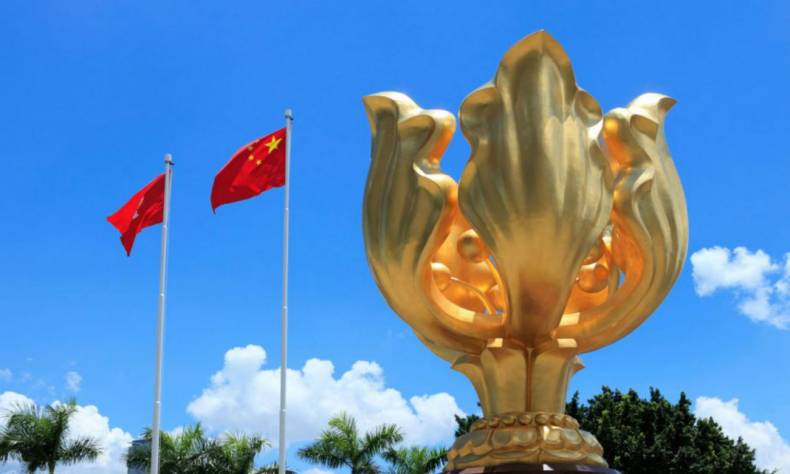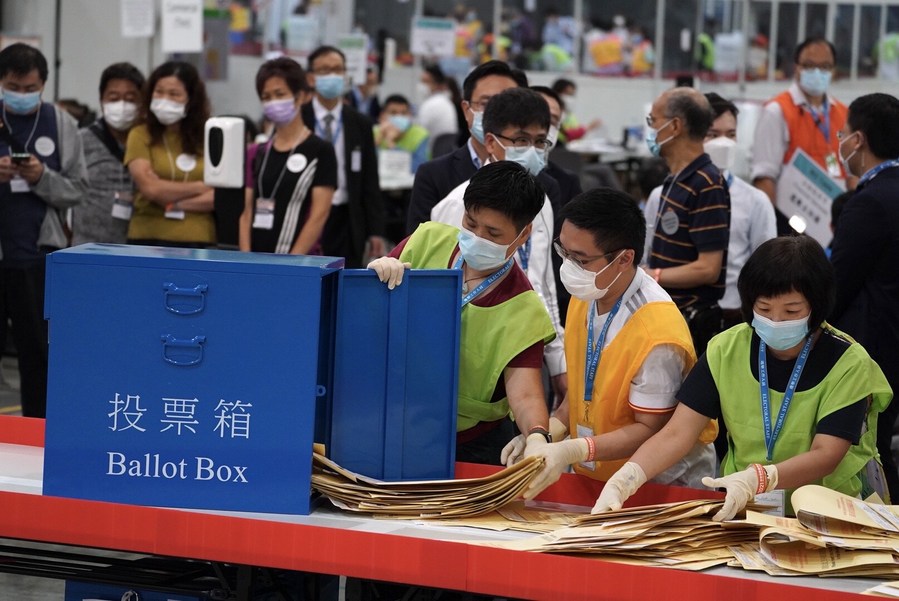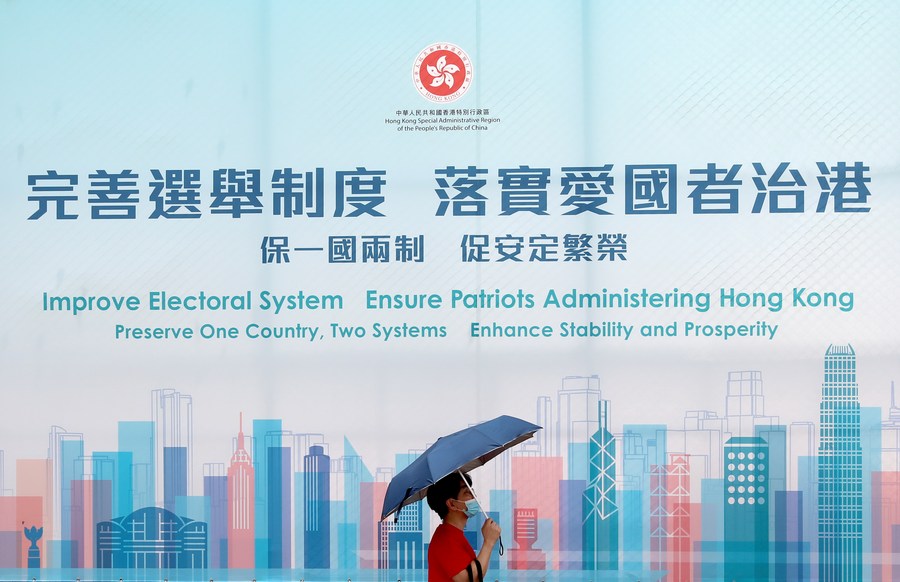From Contention Emerges Contentment

Hopes are high that the new Hong Kong LegCo will make every effort to tackle the city’s real problems and seize every newfangled, historic even, opportunity arising from national development.
For a long time, many in the West have had a warped perception of what exactly has been going on in Hong Kong courtesy of misleading political narratives and media manipulations. In the context of ideological confrontation, Hong Kong is portrayed as a delicate princess violated by an overbearing and all-consuming dragon. The anti-China protesters dominating global headlines are often hailed as “freedom fighters” to garner empathy and serve up the moral high ground for external forces to interfere in China’s internal affairs—via the Hong Kong issue.
The election of the seventh-term Legislative Council (LegCo) of China’s Hong Kong Special Administrative Region (HKSAR) is set to take place on December 19, marking the first time they will unfold under the principle of “patriots governing Hong Kong.” For the city, a healthy and stable legislature is not only necessary to sustain long-term stability, but also demonstrates a significant transition from chaos to governance and prosperity.

The core of the Hong Kong issue is essentially a matter of development rather than one ideologically driven. Formerly under the colonial rule of the British Empire, Hong Kong had since 1949 become one of the few channels for commerce and communication between the Chinese mainland and the West, and over the decades developed into a global financial and trade powerhouse. Yet following the mainland’s reform and opening up since 1979, the dividends originally enjoyed solely by Hong Kong have been diluted, while its deep-seated social and economic problems have gradually surfaced: a single economic structure, a hollowing out of the manufacturing industry, an ever-widening gap between rich and poor, skyrocketing housing prices, a lack of career advancement opportunities for the younger generations… Although the SAR government has been dedicated to removing these obstacles, due to loopholes in the administrative structure and its electoral system, local vested interest groups on all levels and external forces continuing to infiltrate, a series of development plans benefiting the local livelihood largely resulted in zilch.
As the power gap between East and West continues to narrow, a handful of Western countries caught in the Thucydides Trap notion have begun to use Hong Kong as a pawn in their game to contain China’s rise. By means of creating international sensation, propping up puppets, providing funds and technical support, they turn the city’s internal dilemma into a confrontation between centralization and democracy. The so-called “color revolution” reached its peak during the anti-extradition law amendment bill movement in 2019, and turned into a large-scale display of violent misconduct. The ferociousness of it all caused serious trauma to the overall Hong Kong society.

At this point, the Central Government can no longer idly sit by. With the promulgation and implementation of the Law on Safeguarding National Security in HKSAR on June 30, 2020, the violent protestors, who seriously undermined democracy, freedom and the rule of law in Hong Kong, were punished. The implementation of the new electoral system has brought Hong Kong’s elections back to a model of healthy competition and, at the same time, plugged the holes in a Swiss cheese-like system formed by anti-China forces.
The future administrators of Hong Kong will not only be patriots who love their country and Hong Kong, but also political elites who possess both the ability and political integrity to take up the daunting task at hand. These guardians will take on the responsibilities that come with the role of leadership, dare to meet tough challenges, be practical and work for the benefit and contentment of Hong Kong residents.
The Central Government will always have HKSAR’s best interest at heart. Over the past year alone, the Central Government has issued a series of policies to help Hong Kong and its residents, covering trade, finance, culture, international exchanges and regional cooperation.
Hopes are high that the new Hong Kong LegCo will make every effort to tackle the city’s real problems and seize every newfangled, historic even, opportunity arising from national development. With the firm support of the Central Government, the time has now come for Hong Kong to sail out into the open waters once again.
 Facebook
Facebook
 Twitter
Twitter
 Linkedin
Linkedin
 Google +
Google +










